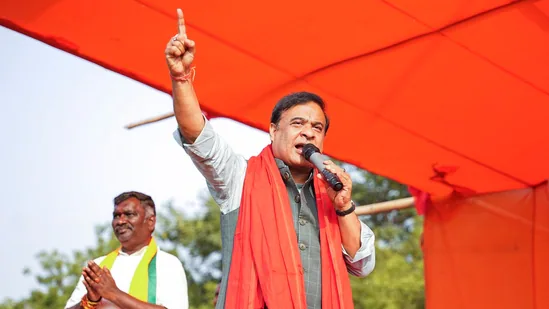The Assam government’s recent decision to link Aadhaar with the National Register of Citizens (NRC) has sparked fierce opposition, with critics calling it a move towards turning India into a “banana republic.” The proposal, approved by the Assam Cabinet, aims to verify the identities of citizens whose names are included in the NRC published in 2019. While the state government argues that this measure will enhance accuracy and eliminate irregularities, opposition leaders and activists have raised serious concerns about its implications for privacy, citizenship, and democratic accountability.
Background of the NRC and Aadhaar Debate
The NRC was first implemented in Assam to address longstanding concerns over illegal immigration from neighboring Bangladesh. The final NRC list, published in August 2019, excluded over 1.9 million people, many of whom are now battling to prove their citizenship in foreigner tribunals. While the process was intended to resolve issues of undocumented migration, it has been widely criticized for inaccuracies, procedural lapses, and the immense human cost it imposed on those excluded.
Aadhaar, India’s biometric identity system, was introduced to streamline access to welfare and ensure unique identification for residents. However, its use in verifying citizenship has been a contentious issue, given that Aadhaar is meant to be proof of residency and not citizenship.
The Assam Cabinet’s decision to link Aadhaar with NRC, therefore, has reignited the debate about the scope and purpose of both initiatives. Critics argue that this move could have far-reaching consequences for those already struggling with documentation, further marginalizing vulnerable communities.
Opposition’s Concerns
Leading the charge against the Assam government, opposition parties have accused the ruling Bharatiya Janata Party (BJP) of undermining constitutional safeguards and promoting a divisive agenda. Congress leader Debabrata Saikia labeled the move as “anti-people,” arguing that Aadhaar was never designed to serve as a tool for citizenship verification. “This decision sets a dangerous precedent by conflating residency with citizenship,” Saikia stated.
The Trinamool Congress (TMC) also criticized the decision, with its leaders describing it as part of a broader “authoritarian” approach to governance. TMC spokesperson Saket Gokhale argued that linking Aadhaar to the NRC could violate the Supreme Court’s rulings on privacy and data protection, particularly the landmark judgment in the Aadhaar case that restricted its mandatory use.
Civil rights organizations have expressed similar concerns, warning that the linkage could lead to mass exclusion and disenfranchisement. “Given the flaws in the NRC process, using Aadhaar to verify entries could result in more people being wrongly excluded,” said Anupama Roy, a researcher on citizenship studies. Activists have also pointed out the risks of data misuse and surveillance, particularly in a state as sensitive as Assam, where issues of identity and migration are deeply polarizing.
Government’s Defense
Despite the backlash, the Assam government has defended its decision as a necessary step to ensure the integrity of the NRC. Chief Minister Himanta Biswa Sarma emphasized that linking Aadhaar with the NRC would help identify discrepancies and ensure that only genuine citizens are included. “This will bring transparency and fairness to the process,” Sarma said, adding that the move is in line with the state’s commitment to protect indigenous communities from the perceived threat of illegal immigration.
The government has also assured that adequate safeguards will be put in place to protect individual data and prevent misuse. However, these assurances have done little to assuage fears, with critics arguing that the lack of clear guidelines and oversight mechanisms could render these promises hollow.
Implications for Citizenship and Democracy
The controversy over linking Aadhaar with NRC raises broader questions about citizenship and democracy in India. Experts warn that such measures could erode trust in public institutions and create a climate of fear and uncertainty, particularly among marginalized groups.
“The decision reflects a shift towards a surveillance state, where basic rights are contingent on producing documentation that many do not possess,” said political analyst Pradip Phukan. Critics also argue that the move could exacerbate communal tensions in Assam, a state that has already witnessed decades of strife over identity and migration.
As the debate over linking Aadhaar and NRC intensifies, the Assam government faces the daunting task of balancing security concerns with constitutional principles. While proponents argue that the move will enhance transparency, its critics warn of the dangers of exclusion, data misuse, and authoritarian overreach.
Ultimately, the controversy underscores the need for a more inclusive and transparent approach to citizenship verification—one that upholds the rights and dignity of all citizens rather than eroding democratic norms in the name of efficiency. For now, the government’s decision has only deepened the fault lines in an already fraught discourse on identity and belonging in India.


